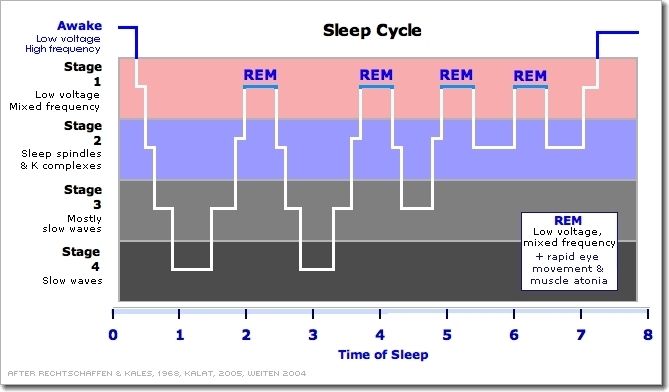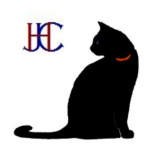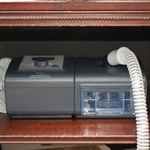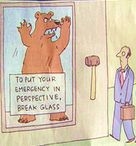Sleepyhead, how can I tell when I fell asleep?
Sleepyhead, how can I tell when I fell asleep?
Ive worn my mask for the past 16 days! I'm claustrophobic and the first night my session was only 34 minutes long, last night I got to 6.5 hours. I start wearing my mask while watching tv and the last few nights I've used some anxiety medication to help relax me. My AHI was 6 last night, but I think it was actually higher, because part of mask time was not spent asleep, again I was watching tv. What graph shows when I actually fell asleep? I'm assuming my AHI number is then number of total incidents divided by actual sleep time? Thanks!
_________________
| Mask: AirFit™ F10 Full Face Mask with Headgear |
| Humidifier: S9™ Series H5i™ Heated Humidifier with Climate Control |
| Additional Comments: Back on the hose, this time for good! |
Re: Sleepyhead, how can I tell when I fell asleep?
lilasmom wrote:Ive worn my mask for the past 16 days! I'm claustrophobic and the first night my session was only 34 minutes long, last night I got to 6.5 hours. I start wearing my mask while watching tv and the last few nights I've used some anxiety medication to help relax me. My AHI was 6 last night, but I think it was actually higher, because part of mask time was not spent asleep, again I was watching tv. What graph shows when I actually fell asleep? I'm assuming my AHI number is then number of total incidents divided by actual sleep time? Thanks!
Actually its difficult for Sleepyhead to determine whether you are sleeping or not. It measures the time you were wearing the mask and had the CPAP running. Your AHI is the total number of events divided by the number of hours the machine was running.
_________________
| Machine: ResMed AirSense™ 10 AutoSet™ CPAP Machine with HumidAir™ Heated Humidifier |
| Mask: Fisher & Paykel Vitera Full Face Mask with Headgear (S, M, or L Cushion) |
| Additional Comments: Back up is a new AS10. |
Re: Sleepyhead, how can I tell when I fell asleep?
Thanks! Can I use the snore graph to help narrow down the time? I'm not feeling rested by any means and then no my settings may be too low? But if my AHI is 4 on a given night, won't my sleep therapist just think everything's fine? It doesn't feel fine. Maybe I'll screen shot a few nights and post them here and ask for opinions? Thanks!
_________________
| Mask: AirFit™ F10 Full Face Mask with Headgear |
| Humidifier: S9™ Series H5i™ Heated Humidifier with Climate Control |
| Additional Comments: Back on the hose, this time for good! |
Re: Sleepyhead, how can I tell when I fell asleep?
Do the shots... the DME is not a doctor (neither are we, but we have lots more experience with this kind of stuff but no vested interest).
- Jay Aitchsee
- Posts: 2936
- Joined: Sun May 22, 2011 12:47 pm
- Location: Southwest Florida
Re: Sleepyhead, how can I tell when I fell asleep?
As Julie says, post the shots. Lot's of folks can help you interpret them.lilasmom wrote:Thanks! Can I use the snore graph to help narrow down the time? I'm not feeling rested by any means and then no my settings may be too low? But if my AHI is 4 on a given night, won't my sleep therapist just think everything's fine? It doesn't feel fine. Maybe I'll screen shot a few nights and post them here and ask for opinions? Thanks!
An AHI of 4 is good, but not particularly great. Many look for something less than one.
It is very difficult to tell when one is actually asleep by looking at the breathing graphs alone. Usually, to be sure, an EEG monitor would be needed. However, the graphs can yield some pretty good clues. Snoring could be one. The shape and amplitude of the Breathing Waveform of Flow Rate graph could be another. Generally speaking, sleeping waveforms are more regular and of smaller amplitude than wake waveforms - but sleeping waveforms can also have considerable variability as in REM, for example.
_________________
| Mask: AirFit™ P10 Nasal Pillow CPAP Mask with Headgear |
| Additional Comments: S9 Auto, P10 mask, P=7.0, EPR3, ResScan 5.3, SleepyHead V1.B2, Windows 10, ZEO, CMS50F, Infrared Video |
Re: Sleepyhead, how can I tell when I fell asleep?
She has some SleepyHead graphs posted in this thread.
viewtopic/t108492/Advice-requested-is-m ... o-low.html
To answer how to tell if one is asleep or not...sometimes a person can spot a change in the flow rate pattern from awake to asleep but it takes a lot of experience to spot the sometimes subtle differences in air flow/breathing. Sometimes it's easy to see the difference but sometimes not so easy to spot.
viewtopic/t108492/Advice-requested-is-m ... o-low.html
To answer how to tell if one is asleep or not...sometimes a person can spot a change in the flow rate pattern from awake to asleep but it takes a lot of experience to spot the sometimes subtle differences in air flow/breathing. Sometimes it's easy to see the difference but sometimes not so easy to spot.
_________________
| Machine: AirCurve™ 10 VAuto BiLevel Machine with HumidAir™ Heated Humidifier |
| Additional Comments: Mask Bleep Eclipse https://bleepsleep.com/the-eclipse/ |
I may have to RISE but I refuse to SHINE.
Re: Sleepyhead, how can I tell when I fell asleep?
After more than 5 years of looking at my breathing (wave form) data every day in Encore, I have developed a pretty good feel for when I am awake and when asleep. I just looked at some data in Encore and the exact same interval in SleepyHead. Its clear for me in Encore and not so clear in SleepyHead. The way the graphics are displayed in each program is very different. Even drilling down in SleepyHead to the same level that Encore displays, it's still very hard to tell in SleepyHead.
In your case, ResScan is the similar manufacturer's software and I am completely unfamiliar with its displays so I wouldn't be able to suggest that it would be either easier or harder in ResScan than in SleepiHead..
I suspect that if you took the time and looked at many instances in which you absolutely know you have woken up (and made some indication so the report would be clear like taking three really fast and deep breaths) and look in detail at the last 10 minutes for each one, then you could develop a feel for it. It would require drilling down in the flow data so that the individual breaths were displayed. Sleep data forms are more regular than awake forms but the difference is subtle. In my case it helps that my sleep breathing can be very unstable with lots of central sprinkled around.
In your case, ResScan is the similar manufacturer's software and I am completely unfamiliar with its displays so I wouldn't be able to suggest that it would be either easier or harder in ResScan than in SleepiHead..
I suspect that if you took the time and looked at many instances in which you absolutely know you have woken up (and made some indication so the report would be clear like taking three really fast and deep breaths) and look in detail at the last 10 minutes for each one, then you could develop a feel for it. It would require drilling down in the flow data so that the individual breaths were displayed. Sleep data forms are more regular than awake forms but the difference is subtle. In my case it helps that my sleep breathing can be very unstable with lots of central sprinkled around.
_________________
| Mask: Oracle HC452 Oral CPAP Mask |
| Humidifier: DreamStation Heated Humidifier |
| Additional Comments: EverFlo Q 3.0 Liters O2 PR DSX900 ASV |
Oracle 452 Lessons Learned Updated
DSX900 AutoSV with HC150 extra humidifier and Hibernite heated hose
Settings: EPAP Min-10.0, EPAP Max-17, PS Min-3, PS Max-10, Max Pressure-20, Rate-Auto, Biflex-1.
Sleepyhead and Encore Pro 2.21.
DSX900 AutoSV with HC150 extra humidifier and Hibernite heated hose
Settings: EPAP Min-10.0, EPAP Max-17, PS Min-3, PS Max-10, Max Pressure-20, Rate-Auto, Biflex-1.
Sleepyhead and Encore Pro 2.21.
Re: Sleepyhead, how can I tell when I fell asleep?
It's not any easier using ResScan because it still involves manually zooming in and looking at segments and doesn't offer any way to show all the segments in one continuous report like the Encore wave form reports offer.JDS74 wrote:In your case, ResScan is the similar manufacturer's software and I am completely unfamiliar with its displays so I wouldn't be able to suggest that it would be either easier or harder in ResScan than in SleepiHead..
I agree with you about Encore wave form graphs...it at least makes a difficult evaluation at least possible.
There's no way to get a similar report using ResScan or Sleepyhead that I could find.
_________________
| Machine: AirCurve™ 10 VAuto BiLevel Machine with HumidAir™ Heated Humidifier |
| Additional Comments: Mask Bleep Eclipse https://bleepsleep.com/the-eclipse/ |
I may have to RISE but I refuse to SHINE.
- chunkyfrog
- Posts: 34545
- Joined: Mon Jul 12, 2010 5:10 pm
- Location: Nowhere special--this year in particular.
Re: Sleepyhead, how can I tell when I fell asleep?
Several fitness monitors can approximate when you sleep, and some go into a bit of detail.
My Misfit Flash will do it, and quite a few others, including fitbit, etc.
My Misfit Flash will do it, and quite a few others, including fitbit, etc.
_________________
| Mask: AirFit™ P10 For Her Nasal Pillow CPAP Mask with Headgear |
| Additional Comments: Airsense 10 Autoset for Her |
- SleepyCPAP
- Posts: 333
- Joined: Wed Dec 08, 2010 6:01 am
Re: Sleepyhead, how can I tell when I fell asleep?
Hi lilasmom,
At first I zoomed in and looked at the waveforms. Awake, I tend to have more rounded "sine wave" types of waveforms, asleep looks different. But that takes time. Then I figured out which graphs might show sleep at a glance. For me, exhale time is the biggest clue -- when that graph is high, it usually means I'm awake. I can see exhale time start high, and then drop below a line when I've been in bed for a while. It rises again in the morning as I'm awake and thinking of opening my eyes and getting up. Maybe you have a graph which gives you such clues?
--SleepyCPAP
At first I zoomed in and looked at the waveforms. Awake, I tend to have more rounded "sine wave" types of waveforms, asleep looks different. But that takes time. Then I figured out which graphs might show sleep at a glance. For me, exhale time is the biggest clue -- when that graph is high, it usually means I'm awake. I can see exhale time start high, and then drop below a line when I've been in bed for a while. It rises again in the morning as I'm awake and thinking of opening my eyes and getting up. Maybe you have a graph which gives you such clues?
--SleepyCPAP
_________________
| Machine: AirCurve™ 10 VAuto BiLevel Machine with HumidAir™ Heated Humidifier |
| Mask: Bleep DreamPort CPAP Mask Solution |
| Additional Comments: Use OSCAR. Combine AlaxoStent with VAuto for perfect 0.0 AHI at PS 3.6 over 4cm EPAP |
-- SleepyCPAP
Sleep study in 2010 (11cm CPAP). Pillows (Swift FX>TAP PAP >Bleep). PRS1 “Pro” 450/460 until recall, now Aircurve 10 VAuto. Tape mouth. Palatal Prolapse solved by AlaxoStent & VAuto EPAP 4cm, PS 3.6cm = 0.0 AHI
Sleep study in 2010 (11cm CPAP). Pillows (Swift FX>TAP PAP >Bleep). PRS1 “Pro” 450/460 until recall, now Aircurve 10 VAuto. Tape mouth. Palatal Prolapse solved by AlaxoStent & VAuto EPAP 4cm, PS 3.6cm = 0.0 AHI
- Sir NoddinOff
- Posts: 4190
- Joined: Mon May 14, 2012 5:30 pm
- Location: California
Re: Sleepyhead, how can I tell when I fell asleep?
I've been plugging away at this concept for years and have some supporters. Caveat: I realize some people's breathing and tidal volume doesn't change much from being awake to being asleep, however for the many that do show patterns of change (like JDS,CapriLoki and me) the instructions below shows what one can do to get an approximation of 'real sleep' and to a lesser degree, REM stages. NOTE: This won't specially tell you your REM stages but you can infer them from the chart I've appended at the bottom. IMO, This method is about the best you can do if you don't have your brain waves analyzed in conjunction with a chest respiration strap:
First some sleep stage basics. The method I'll describe below will give you a window into what's happening during the entire night. Typically the first REM period starts 60 to 90 minutes after sleep onset. You will usually see flow spikes and various apneas before, during and maybe after the REM periods. SEE PICTURE AT BOTTOM. Most people with normal sleep, after several hours, come back up to stage one or two and then go back to REM for another go round with the same apnea and flow spikes, but generally not as pronounced as the first set. The same continues for the rest of the night. Age can be a big factor in one's sleep patterns. This method below works nicely with Sleephead because it calculates any time segments for you automatically when you use SH's wonderful cursor blocking/zooming feature. To find the time elapsed for any highlighted waveforms you select, go to your Flow Rate graph, (be sure to turn it on if you turned it off). Note where it says 'Duration' at the upper left followed by the hours,minutes, seconds. It's very handy.

To tell when I'm actually sleeping I look at three lines: My Respiration Rate, plus my Tidal Volume line, plus my Minute Ventilation line, then correlate them to my software's timeline (the hourly horizontal axis at the bottom). Unfortunately, I can't tell you what your ideal lines/graphs are in these three categories because everybody is different, however I can say that when you absolutely know you were asleep inspect those three aforementioned flow lines (RR, TV and MV), next use SH's time highlighting feature (duration) to record the length of each of your sleep segments. I realize this sounds hard to do but it's not really that tough. Over several nights, a strong pattern should emerge if you are careful in your observations. You will also be able to spot transitions from wakefulness to real sleep and vice versa, which is actually the easiest part. This critical inspection process is the key to understanding your body/brain entry into the four recognized sleep stages, and as a bonus it lets you drop from your calculations all the minutes/hours you were awake (Tip: these sleep transition periods generally all look a lot rougher, choppy even). LOOK FOR THE CORRESPONDING 'REAL SLEEP' PERIODS (time in hours) BY INSPECTING AND NOTING THE TIME LINE AT THE BOTTOM OF EACH OF THE THREE AFOREMENTIONED GRAPHS. This works with Sleepyhead, ResScan and Encore Pro, all of which I use. It's very cool to see it all play out at night, as long as you feel good enough in the morning to enjoy it. Summary: Keep records of the things I mentioned above for a week or so... you will begin to see distinct waveform patterns emerge contrasting wakefulness vs sleep.

First some sleep stage basics. The method I'll describe below will give you a window into what's happening during the entire night. Typically the first REM period starts 60 to 90 minutes after sleep onset. You will usually see flow spikes and various apneas before, during and maybe after the REM periods. SEE PICTURE AT BOTTOM. Most people with normal sleep, after several hours, come back up to stage one or two and then go back to REM for another go round with the same apnea and flow spikes, but generally not as pronounced as the first set. The same continues for the rest of the night. Age can be a big factor in one's sleep patterns. This method below works nicely with Sleephead because it calculates any time segments for you automatically when you use SH's wonderful cursor blocking/zooming feature. To find the time elapsed for any highlighted waveforms you select, go to your Flow Rate graph, (be sure to turn it on if you turned it off). Note where it says 'Duration' at the upper left followed by the hours,minutes, seconds. It's very handy.

To tell when I'm actually sleeping I look at three lines: My Respiration Rate, plus my Tidal Volume line, plus my Minute Ventilation line, then correlate them to my software's timeline (the hourly horizontal axis at the bottom). Unfortunately, I can't tell you what your ideal lines/graphs are in these three categories because everybody is different, however I can say that when you absolutely know you were asleep inspect those three aforementioned flow lines (RR, TV and MV), next use SH's time highlighting feature (duration) to record the length of each of your sleep segments. I realize this sounds hard to do but it's not really that tough. Over several nights, a strong pattern should emerge if you are careful in your observations. You will also be able to spot transitions from wakefulness to real sleep and vice versa, which is actually the easiest part. This critical inspection process is the key to understanding your body/brain entry into the four recognized sleep stages, and as a bonus it lets you drop from your calculations all the minutes/hours you were awake (Tip: these sleep transition periods generally all look a lot rougher, choppy even). LOOK FOR THE CORRESPONDING 'REAL SLEEP' PERIODS (time in hours) BY INSPECTING AND NOTING THE TIME LINE AT THE BOTTOM OF EACH OF THE THREE AFOREMENTIONED GRAPHS. This works with Sleepyhead, ResScan and Encore Pro, all of which I use. It's very cool to see it all play out at night, as long as you feel good enough in the morning to enjoy it. Summary: Keep records of the things I mentioned above for a week or so... you will begin to see distinct waveform patterns emerge contrasting wakefulness vs sleep.

_________________
| Mask: AirFit™ F10 Full Face Mask with Headgear |
| Additional Comments: Sleepyhead software v.0.9.8.1 Open GL and Encore Pro v2.2. |
I like my ResMed AirFit F10 FFM - reasonably low leaks for my ASV therapy. I'm currently using a PR S1 AutoSV 960P Advanced. I also keep a ResMed S9 Adapt as backup. I use a heated Hibernite hose. Still rockin' with Win 7 by using GWX to stop Win 10.














